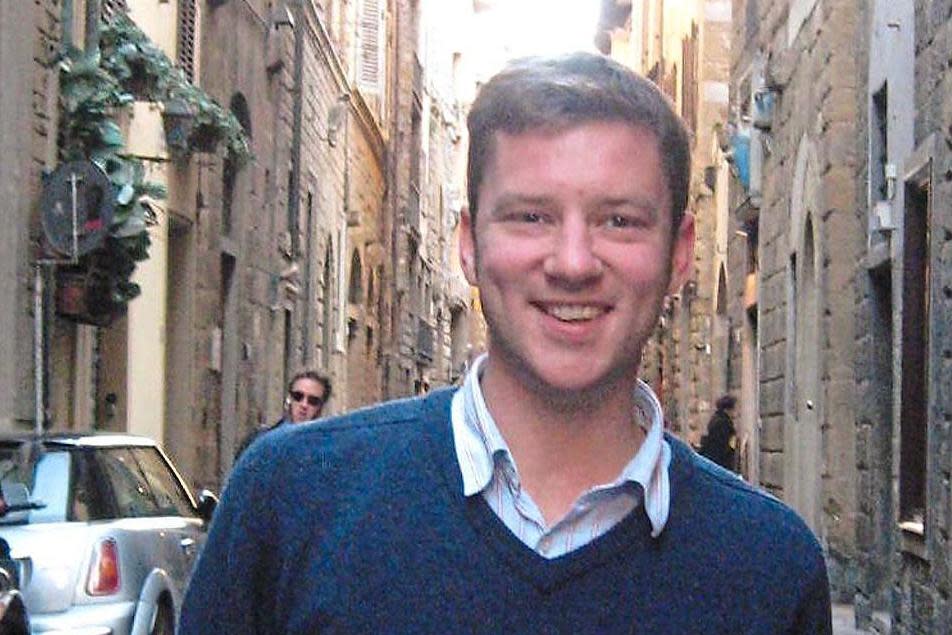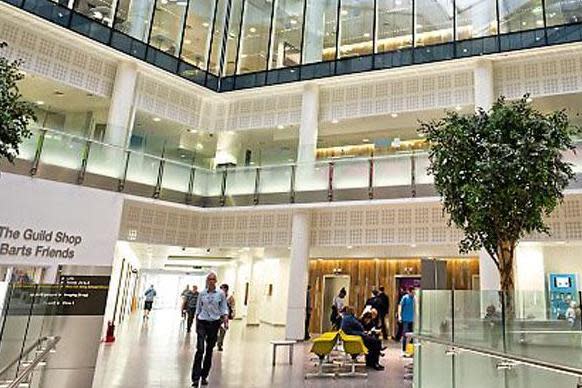Heart patient died despite desperate emails as doctors failed to act on test results

A heart patient died after doctors failed to act on test results and his emails asking for medical help were not answered, the Evening Standard has learned.
Harry Chapman, 34, went undiagnosed for eight months and was on a waiting list for an ICD implantable defibrillator when he suffered a cardiac arrest and died in June 2016.
The LSE graduate first showed signs of an irregular heartbeat in August 2015 but he was not referred for treatment until April the following year, an inquest was told.
Coroner Dr Julian Morris criticised doctors at Barts Health NHS Trust for ignoring Mr Chapman’s emails in the months before his death.

Dr Morris said the emails “were often not viewed and/or acted upon and as a result no response was received by the patient”.
At an inquest in November last year he found there were two missed opportunities, in August and November 2015, to diagnose Mr Chapman and refer him for the implant.
Married Mr Chapman, a solar energy company manager, was being treated at the £234 million Barts Heart Centre in Smithfield.
“I consider Mr Chapman died as a result of natural causes but that the care provided to him in or around August and November 2015 was such that it amounted to a gross failure to provide basic care for his condition,” Dr Morris said.
“The missed opportunity more than minimally, negligibly, or trivially contributed to Mr Chapman’s death. Rendering that treatment at the earlier time would, on balance, have saved Mr Chapman’s life when he had the arrhythmia in June 2016.”
A source close to the case told the Standard: “Harry had emailed the consultant to say he wasn’t happy with his care. Harry was certain that he had symptoms [of heart problems].
"His emails were saying: ‘Why do I have to wait so long for an ICD?’”
The coroner sent a prevention of future deaths report to Health Secretary Jeremy Hunt, Barts Health and the Royal Brompton hospital, where the lead consultant — who was not named — now works.
Barts Health NHS Trust said it had introduced a fast-track procedure to identify patients at risk of cardiac arrest, and now included emails in patient records.
Mr Chapman was first diagnosed with an inherited heart condition — hypertrophic cardiomyopathy — in 2009. This causes the heart wall to thicken, making it more difficult for it to beat.
He remained trouble-free and at low risk while being seen by specialists between 2010 and 2015, the inquest heard, but an August 2015 test revealed he had developed non-sustained ventricular tachycardia, a condition which can produce a fast and irregular heartbeat.
The inquest heard the first consultant “did not review” the test results, and a second doctor who looked at the results in November 2015 “considered it to be unequivocal” and took no action.
“No action was taken and the failure had a direct and clear causal connection with Mr Chapman’s death,” said Dr Morris.
Turning to Mr Chapman’s failed efforts to contact his doctors, Dr Morris said: “It is fully appreciated that consultants are busy with their clinical responsibilities, covering wards, clinics, and on calls.
“However, if contact details are provided for ‘direct access’ to individual doctors or consultants, it seems obligatory that those should be viewed, acknowledged, and patients responded to.”
He said local or national guidelines to cover direct contact between patients and doctors should be considered in the wake of this case.
Barts Health NHS Trust said: “We are deeply sorry for failings in the care we provided to Mr Chapman, and would like to once again send our sincere condolences to his family...
“The trust carried out a thorough review into Mr Chapman’s care and the cardiomyopathy service has made a number of changes to prevent re-occurrence, including implementing a fast-track system for decisions on implantable cardioverter defibrillators.”
A spokesman for Royal Brompton & Harefield NHS Foundation Trust said: “Mr Chapman was at no time a patient under the care and treatment of Royal Brompton & Harefield NHS Foundation Trust, and as such we did not participate in this inquest.
"We are reviewing our systems to ensure that the current processes minimise the risk of a similar event happening here and robust safety nets are in place.”

 Yahoo News
Yahoo News 
